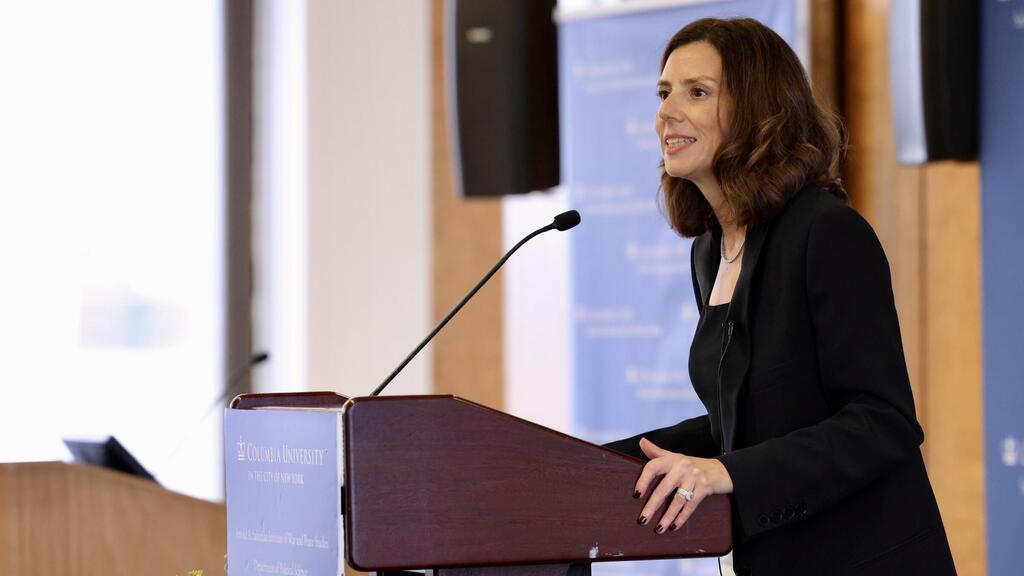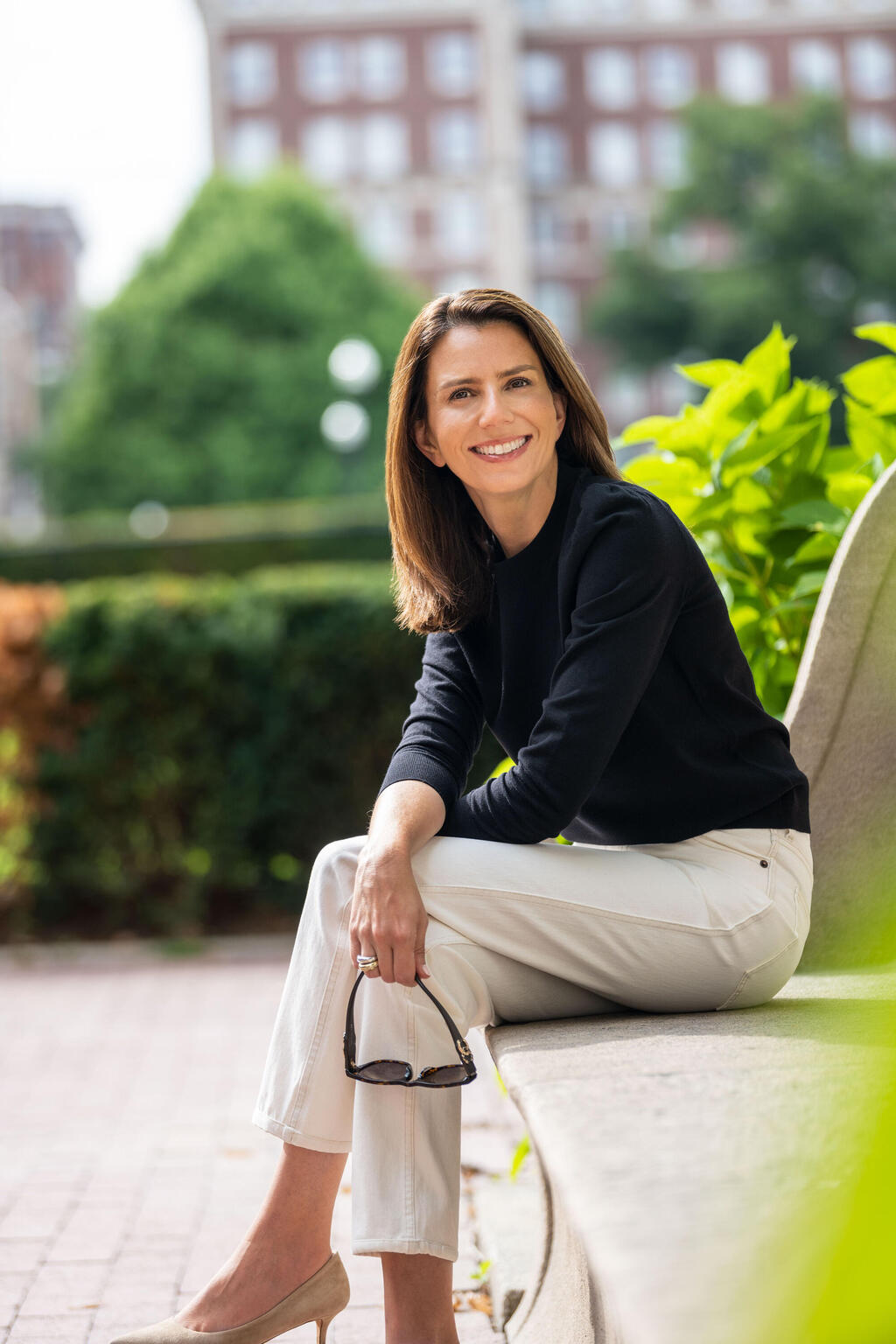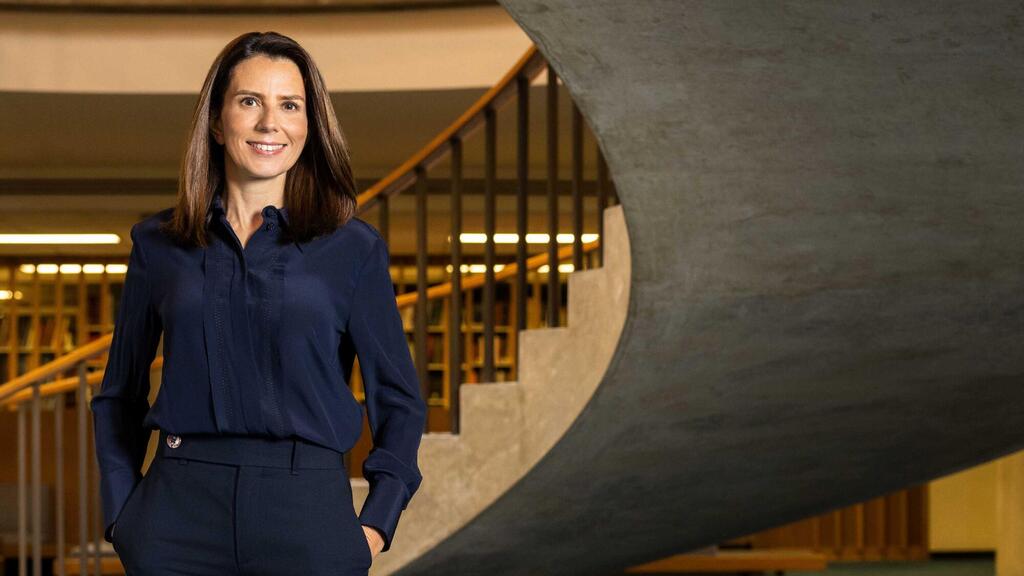Last summer, Prof. Keren Yarhi-Milo was appointed dean of Columbia University’s School of International Relations and Public Policy in New York (SIPA), becoming not only the first Israeli in office but also the youngest woman to ever fill such a high position at one of the world’s most prestigious universities.
Related stories:
“Democracy in Israel is very fragile, and the judicial overhaul effort there is very worrying,” she said in an interview with Ynet. “In a democracy, there is freedom of expression, there are institutions, there is an elected government, there is a separation of powers, and there are demonstrations – and everything must be protected."
"I come from a political family that lives in Israel, and I talk to my mother a lot about what is happening. I feel the emotions, I hear the pain, and it saddens me that I am not in Israel right now.”
“The situation is worrying,” she explains. “I don’t know where this is going, but after a bit of research, I can see that this is part of a global trend. One of the challenges that the world faces today is the strength of democracies, and we emphasize that in our school. What we see now in Israel and elsewhere in the world is how fragile democracy is."
“This is a very worrying trend and we are trying to examine the roles of – for example – technology, social media, and disinformation on weakening democracies.”
Yarhi-Milo, 44, is not just another analyst opining on the matter. She is considered a prodigy in the field of international relations research, trains the next generation of diplomats and government officials, and heads one of the most important schools in the world, with a list of alumni such as former Secretary of State Madeleine Albright, business magnate Warren Buffett and former CIA Director George Tenet; and a faculty that also includes former U.S. secretary of state Hillary Clinton, with whom she will be teaching a course on decision-making and strategy starting next semester.
An ad for Columbia University featuring Prof. Keren Yarhi-Milo and Hillary Clinton
“The president of the university approached me and told me that he and Hillary were friends and that he thought it was a good idea to introduce us. I told him, ‘Of course!’. She has always been a hero and a role model to me. One of my first memories in international relations is watching on TV the signing of the Oslo Accords at the White House with the Clintons.”
They met for coffee, and the click was instant. "We talked a lot about Israel, she knew a lot about me, read my books, and came prepared as always. I was so excited. I came up with a pitch and was able to convince her that we should teach together, she says.
"She is very intelligent and analytical, and she has vast knowledge and a lot of energy. The course will combine theory and practice. It will cover crisis management and the decisions Hillary had to make in situations such as sanctions on Iran, the Gaza ceasefire, the hunt for bin Laden and more.”
'I’m not an Israeli politician'
Yarhi-Milo's research has never focused on Israel although she testifies that she feels deeply connected to her Israeli identity. “I’m not an Israeli politician,” she explains.
“As a professor of international relations, my books and articles barely touch on Israel. This is not some decision that I made one morning and made consciously, but it is like asking an Israeli physicist why he is not only studying physics in the context of Israel. My work focuses on extensive research. The world of international relations is big, and a lot of the questions in this field are not related to Israel.”
When she took over her current role, she made it clear that she was a "dean for everyone", that she would not pick a side on the Israeli-Palestinian conflict, and "so far I have not faced a problematic situation on either side." On the other hand, one of her goals is to bring more Israeli students to the university.
“Yes, I have a certain goal as a dean and I want to see a lot more students from Israel here,” she says. “Israelis should be present not only in exact sciences, but their presence is also very lacking in social sciences.
Their military experience, for example, is very relevant to what we teach. We forge the leaders of tomorrow, we give them integral and professional tools to recognize and analyze the most pressing problems nowadays, and I very much want to change the anti-Israel bias. It will also allow to change the discourse and give the opportunity for others to hear different opinions."
"It also works the other way around, debating with people from all over the world and hearing what they think about Israel gives them a different perspective. Our advantage is the broad horizon. The world is big, and every country thinks it is the center of the world, but when you come to university you find out how small we are. Suddenly you realize that there are unique problems, but many times they are part of a global trend. That is why it is important for Israeli students to come."
Tackling antisemitism on campus
There is also another, perhaps more personal, challenge Yarhi-Milo has set for herself: The fight against antisemitism on campus. According to a new ADL report released last week, the number of antisemitic incidents in U.S. colleges and universities increased by 41% in the past year. Columbia has been crowned several times as one of the universities with the most antisemitic atmosphere, and SIPA, many of its graduates say, is probably the lion's den.
“Antisemitism is a real and worrying issue, and it’s very important not to let it spread,” says Yarhi-Milo. “It is important to talk about the events and educate to prevent them. I can't talk about what was here before I took office, but we're trying to find as many creative ways to tackle this phenomenon."
"It’s not easy, especially because students don’t always bring it up, but eradicating this phenomenon is something I set myself as a target during my term. We need to help our students draw red lines.
I hate to say it, but Columbia is not unique in that. I went to several universities, so I have the ability to compare. The beauty in Columbia is that we also have the other side: There are strong representatives of the Hillel student organization and Chabad representatives. I’ve been there a few times and it’s just exciting to see a very thriving Jewish community on campus.”






